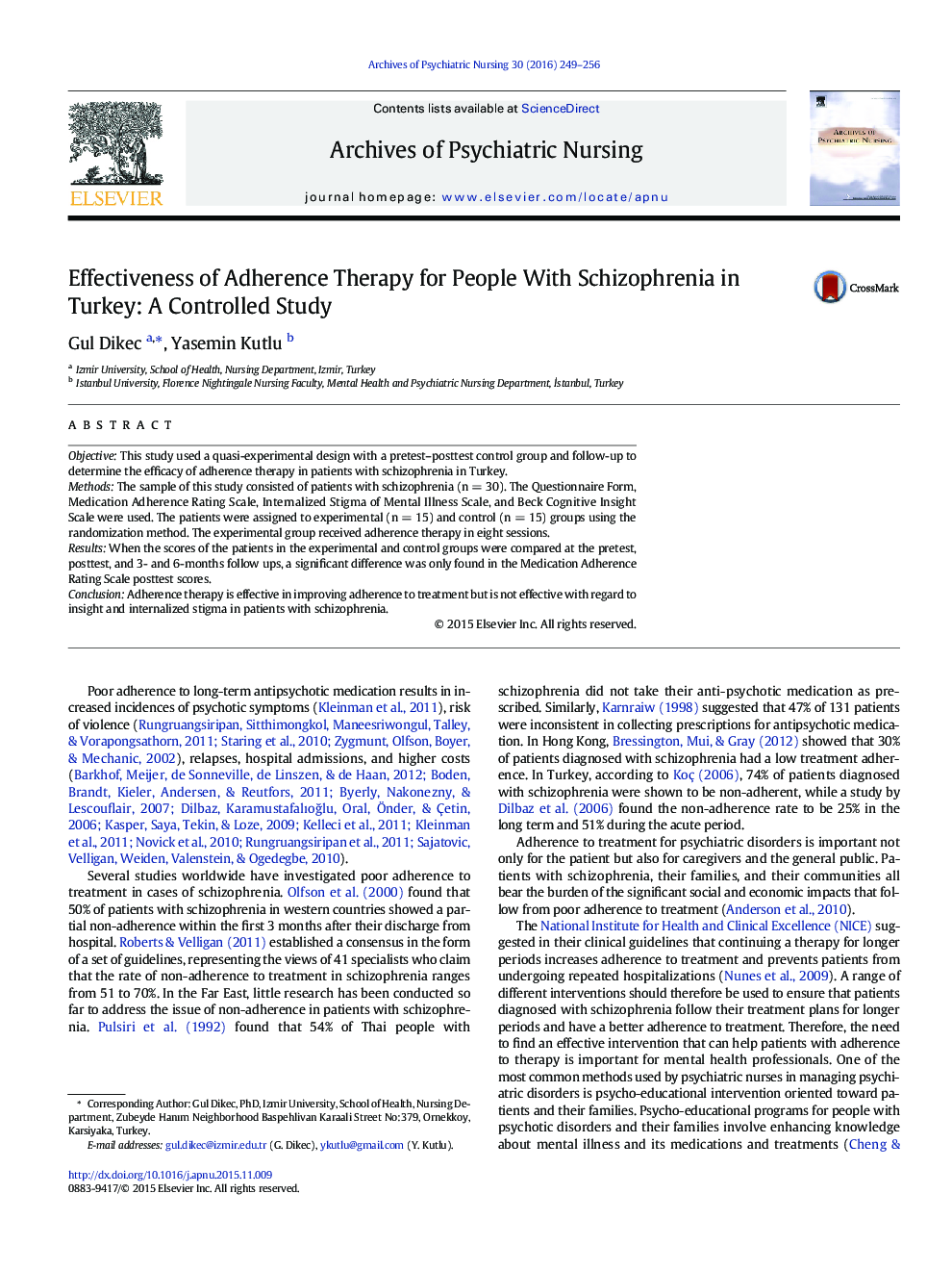| کد مقاله | کد نشریه | سال انتشار | مقاله انگلیسی | نسخه تمام متن |
|---|---|---|---|---|
| 315614 | 1432462 | 2016 | 8 صفحه PDF | دانلود رایگان |
ObjectiveThis study used a quasi-experimental design with a pretest–posttest control group and follow-up to determine the efficacy of adherence therapy in patients with schizophrenia in Turkey.MethodsThe sample of this study consisted of patients with schizophrenia (n = 30). The Questionnaire Form, Medication Adherence Rating Scale, Internalized Stigma of Mental Illness Scale, and Beck Cognitive Insight Scale were used. The patients were assigned to experimental (n = 15) and control (n = 15) groups using the randomization method. The experimental group received adherence therapy in eight sessions.ResultsWhen the scores of the patients in the experimental and control groups were compared at the pretest, posttest, and 3- and 6-months follow ups, a significant difference was only found in the Medication Adherence Rating Scale posttest scores.ConclusionAdherence therapy is effective in improving adherence to treatment but is not effective with regard to insight and internalized stigma in patients with schizophrenia.
Journal: Archives of Psychiatric Nursing - Volume 30, Issue 2, April 2016, Pages 249–256
